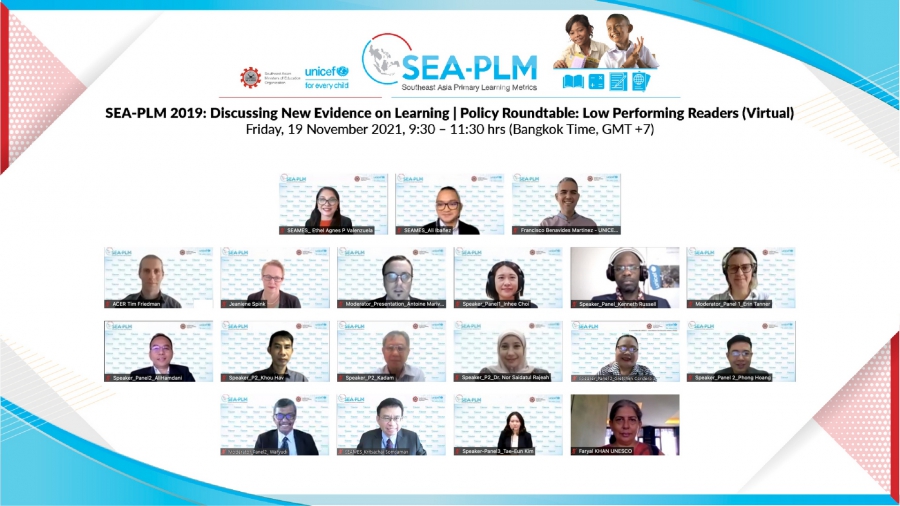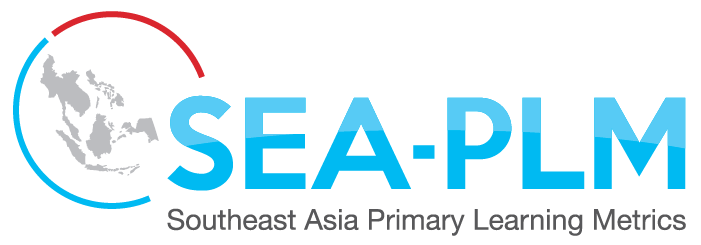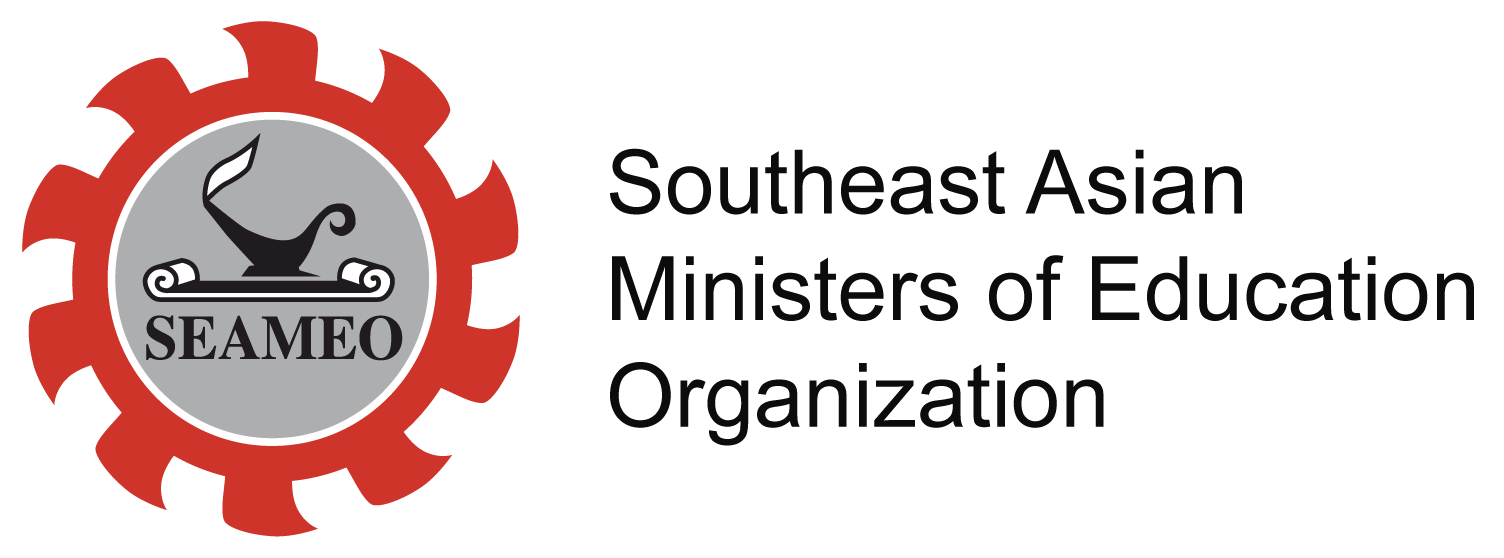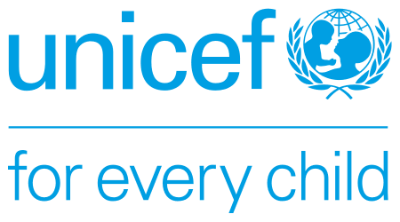Jolin Nguyen, Bangkok, Thailand
19 November 2021 – The Southeast Asia Primary Learning Metrics (SEA-PLM) Secretariat, co-chaired by Southeast Asian Ministers of Education Organization (SEAMEO) and UNICEF Regional Office for East Asia and Pacific (UNICEF EAPRO), has successfully organised a policy roundtable discussion on low performing readers in Southeast Asia across basic education.
The virtual policy roundtable has gathered 75 participants who are education officers, researchers, specialists from SEAMEO Member Countries, SEAMEO Regional Centres and Network, partner organisations including the ASEAN Secretariat, the Australian Department of Foreign Affairs, the Australian Council for Educational Research (ACER), Korean Educational Development Institute (KEDI), Korea Institute for Curriculum and Evaluation (KICE), UNESCO’s Asia and Pacific Regional Bureau for Education - The Network on Education Quality Monitoring in the Asia-Pacific (NEQMAP), UNICEF country offices and the UNICEF Headquarters in New York, the United States.
As part of the discussion, the SEA-PLM Secretariat launched the second SEA-PLM 2019 regional secondary analysis report - SEA-PLM 2019 latest evidence in basic education: Low performing readers in 6 Southeast Asian countries, which was presented by the Australian Council for Educational Research (ACER) who had played the key role in conducting the SEA-PLM database. Two distinguished experts from two partner organisations, namely Korean Educational Development Institute (KEDI) and the UNICEF Headquarters in New York, the United States, provided their insights on the findings from the Secondary Analysis, as well as shared some recommendations on how to boost system and practice changes for reducing the number of low performing readers over time.
The discussion highlighted the concrete reflections from six SEAMEO Member Countries, namely Brunei Darussalam, Cambodia, Lao PDR, Malaysia, Philippines, and Vietnam on their engagement in tackling the low-performing readers and learners during the COVID-19 pandemic as well as the policy implications in accordance with the new evidence from SEA-PLM 2019.
In addition, two esteemed experts from partner organisations, namely Korea Institute for Curriculum and Evaluation (KICE) and UNESCO’s Asia and Pacific Regional Bureau for Education - The Network on Education Quality Monitoring in the Asia-Pacific (NEQMAP), shared their experiences in supporting and promoting the low performing readers and recommended some actions to track reading policy changes and their impacts on learning outcomes.
The virtual policy roundtable extended our effort in using SEA-PLM 2019 results to address challenges to children’s learning and assessment systems development. By interpreting the SEA-PLM 2019’s data and bringing about substantial reflective issues, we hope that each country can develop preliminary policy messages to inform education policies on reducing the risk of students being left behind academically across basic education.
"Proceedings of the policy roundtable is available for view and downloading."




